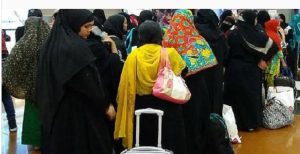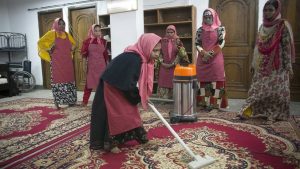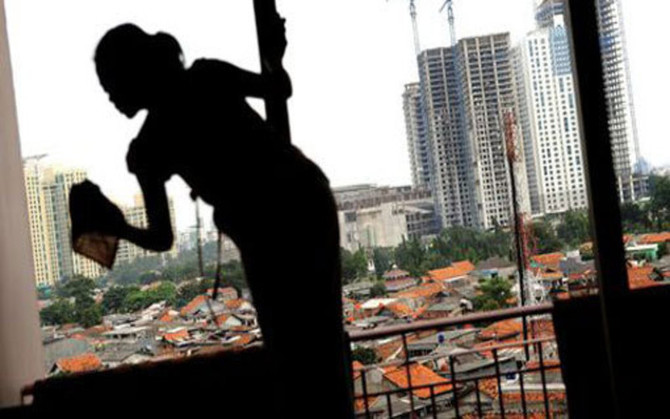Saudi Arabia has announced a reduction in the fees for recruiting domestic workers from several countries, including the Philippines, Sri Lanka, Bangladesh, Uganda, Kenya, and Ethiopia.
The Ministry of Human Resources and Social Development has said that prices have been reduced to ensure fair pricing in line with the changing costs in the recruitment industry.
As for Sri Lanka the Price reduction is from SR13,000 to SR11,750 Price reduction costs for the Philippines Bangladesh, Kenya Uganda and Ethiopia have also been announced.

Saudi Arabia has announced a reduction in the fees for recruiting domestic workers while a number of human right organizations have raised questions on how Sri Lankan and othe domestic workers are been treated by their Saudi masters.
Human Rights Watch (HRW) has previously documented the range of abuses that female migrant domestic workers face, including non-payment of salaries, forced confinement, food deprivation, excessive workloads, and severe psychological, physical, and sexual abuse. Some of these cases amounted to forced labour or trafficking
“Saudi Arabia’s economy relies heavily on migrant workers. Based on its 2022 Census, Saudi Arabia hosts almost 13.4 million migrants, comprising 41.6 percent of the population. Authorities continue to impose one of the most restrictive and abusive Kafla (visa sponsorship) systems in the region, which remains largely unchanged despite recent reforms” said HRW
Recent investigations by International agencies including the ILO have identified a number of issues faced by , Sri Lankan women working as domestic workers in Saudi Arabia.
Exploitative Labour Practices:
- Kafala System:This sponsorship system ties workers’ visas to their employers, giving employers immense control over their movements and legal status. This makes them vulnerable to abuse and exploitation, as they cannot change employers or leave the country without their employer’s consent.
- Long working hours and inadequate rest: Many Sri Lankan workers report being forced to work excessively long hours, often without proper breaks or days off. This leaves them exhausted and vulnerable to health problems.
- Wage theft and non-payment: Employers may withhold or delay wages for months or even years, leaving workers financially dependent and unable to send money back to their families.
- Confiscation of passports and documents: Employers often take away workers’ passports and identity documents, further restricting their movement and ability to seek help.
Abuse and Exploitation:
- Physical and verbal abuse: Sadly, some workers report experiencing physical and verbal abuse from their employers, including beatings, insults, and threats.
- Sexual harassment and assault: Sri Lankan women are particularly vulnerable to sexual harassment and assault due to their isolated positions within households and lack of legal protection.
- Psychological abuse: Isolation, confinement, and constant surveillance can take a toll on workers’ mental well-being, leading to anxiety, depression, and other mental health issues.
Limited rights and access to justice:
- Discrimination :Sri Lankan workers may face discrimination based on their nationality, ethnicity, and religion.
- Language barriers: Lack of Arabic language skills can make it difficult for workers to communicate their needs and seek help.
- Limited access to legal support: Navigating the Saudi legal system can be challenging and expensive, especially for migrant workers with limited resources.
On the other hand Saudi Arabia has ranked first in providing work opportunities to Sri Lankan expats in 2023, as more than 63,000 of them found employment in the Kingdom.

Every year, more than 200,000 migrant workers leave Sri Lanka to work abroad.
They are a main source of foreign exchange for the country, which since last year was gripped by its worst ever financial crisis.
P.M. Amza, Sri Lanka’s ambassador to Saudi Arabia, estimated that in 2023 remittances amounted to over $7 billion, of which a significant portion was contributed by expat workers in the Kingdom.
Analyst say that this is mainly because of the size of the labour market and the hardships women are facing at home.
Many local recruitment agency’s said that Saudi Arabia is less preferred than other Middle Eastern countries but still female domestic workers go to Saudi Arabia as they don’t have many other options.







